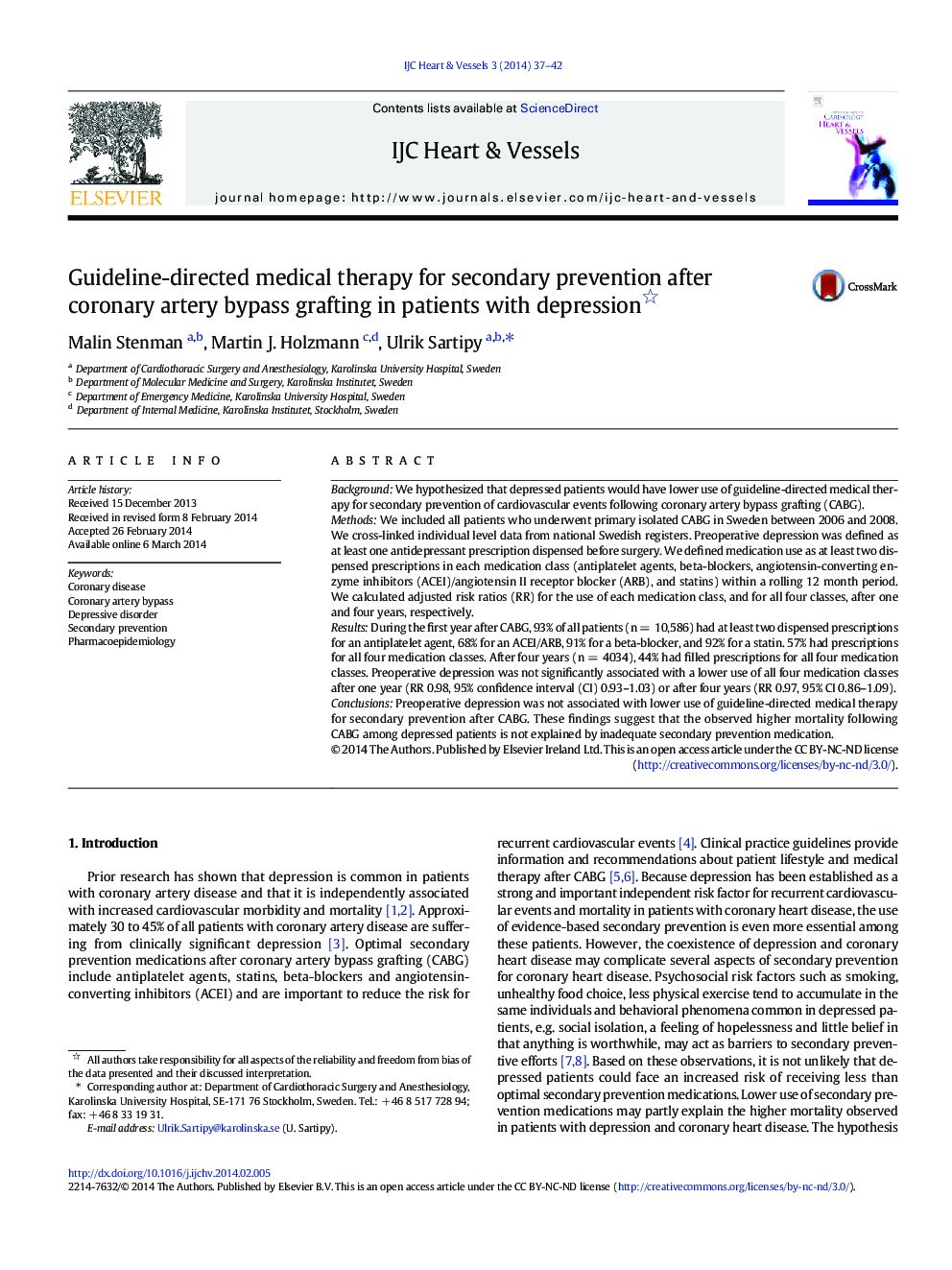| Article ID | Journal | Published Year | Pages | File Type |
|---|---|---|---|---|
| 2927139 | IJC Heart & Vessels | 2014 | 6 Pages |
BackgroundWe hypothesized that depressed patients would have lower use of guideline-directed medical therapy for secondary prevention of cardiovascular events following coronary artery bypass grafting (CABG).MethodsWe included all patients who underwent primary isolated CABG in Sweden between 2006 and 2008. We cross-linked individual level data from national Swedish registers. Preoperative depression was defined as at least one antidepressant prescription dispensed before surgery. We defined medication use as at least two dispensed prescriptions in each medication class (antiplatelet agents, beta-blockers, angiotensin-converting enzyme inhibitors (ACEI)/angiotensin II receptor blocker (ARB), and statins) within a rolling 12 month period. We calculated adjusted risk ratios (RR) for the use of each medication class, and for all four classes, after one and four years, respectively.ResultsDuring the first year after CABG, 93% of all patients (n = 10,586) had at least two dispensed prescriptions for an antiplatelet agent, 68% for an ACEI/ARB, 91% for a beta-blocker, and 92% for a statin. 57% had prescriptions for all four medication classes. After four years (n = 4034), 44% had filled prescriptions for all four medication classes. Preoperative depression was not significantly associated with a lower use of all four medication classes after one year (RR 0.98, 95% confidence interval (CI) 0.93–1.03) or after four years (RR 0.97, 95% CI 0.86–1.09).ConclusionsPreoperative depression was not associated with lower use of guideline-directed medical therapy for secondary prevention after CABG. These findings suggest that the observed higher mortality following CABG among depressed patients is not explained by inadequate secondary prevention medication.
